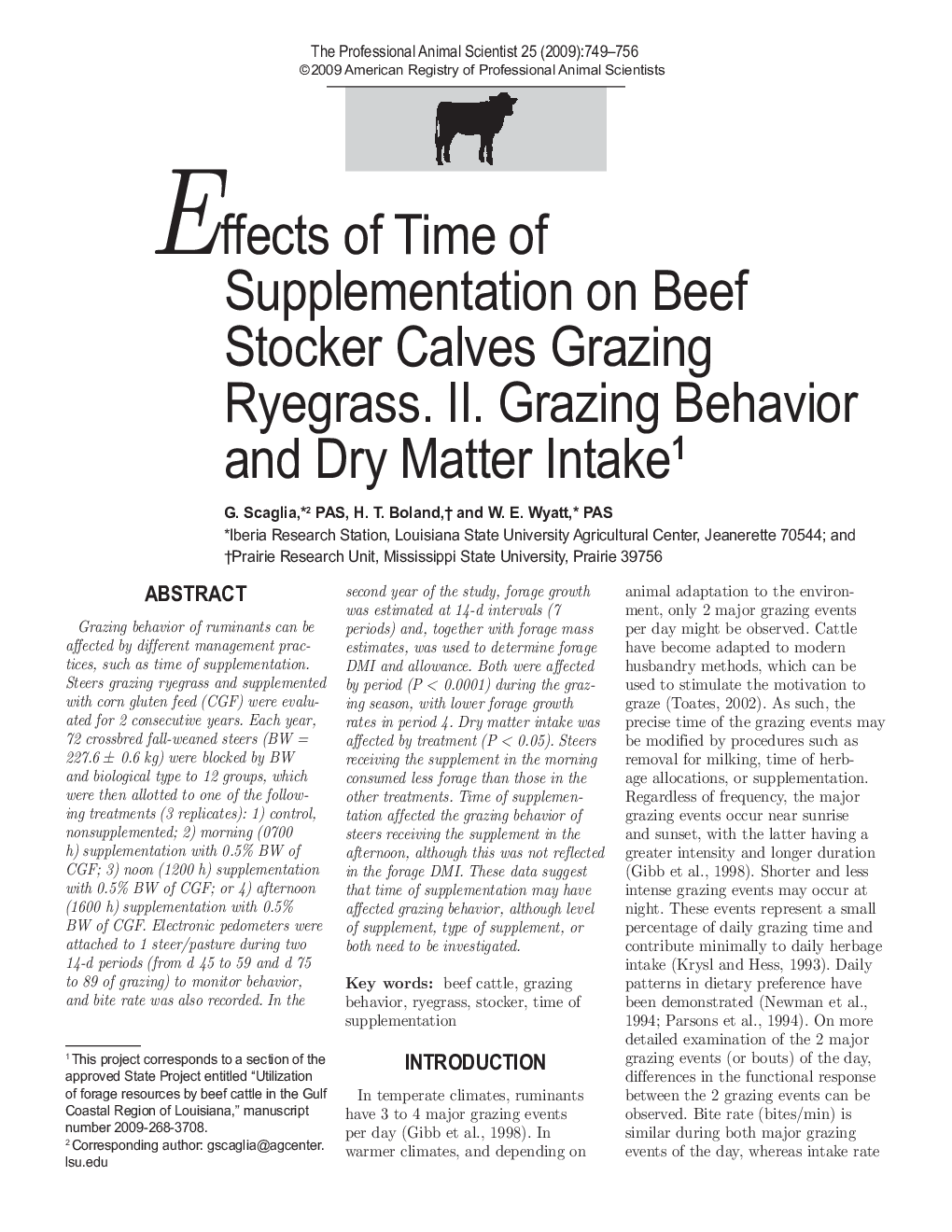| Article ID | Journal | Published Year | Pages | File Type |
|---|---|---|---|---|
| 2454443 | The Professional Animal Scientist | 2009 | 8 Pages |
Abstract
Grazing behavior of ruminants can be affected by different management practices, such as time of supplementation. Steers grazing ryegrass and supplemented with corn gluten feed (CGF) were evaluated for 2 consecutive years. Each year, 72 crossbred fall-weaned steers (BW = 227.6 ± 0.6 kg) were blocked by BW and biological type to 12 groups, which were then allotted to one of the following treatments (3 replicates): 1) control, nonsupplemented; 2) morning (0700 h) supplementation with 0.5% BW of CGF; 3) noon (1200 h) supplementation with 0.5% BW of CGF; or 4) afternoon (1600 h) supplementation with 0.5% BW of CGF. Electronic pedometers were attached to 1 steer/pasture during two 14-d periods (from d 45 to 59 and d 75 to 89 of grazing) to monitor behavior, and bite rate was also recorded. In the second year of the study, forage growth was estimated at 14-d intervals (7 periods) and, together with forage mass estimates, was used to determine forage DMI and allowance. Both were affected by period (P < 0.0001) during the grazing season, with lower forage growth rates in period 4. Dry matter intake was affected by treatment (P < 0.05). Steers receiving the supplement in the morning consumed less forage than those in the other treatments. Time of supplementation affected the grazing behavior of steers receiving the supplement in the afternoon, although this was not reflected in the forage DMI. These data suggest that time of supplementation may have affected grazing behavior, although level of supplement, type of supplement, or both need to be investigated.
Related Topics
Life Sciences
Agricultural and Biological Sciences
Animal Science and Zoology
Authors
G. PAS, H.T. Boland, W.E. PAS,
